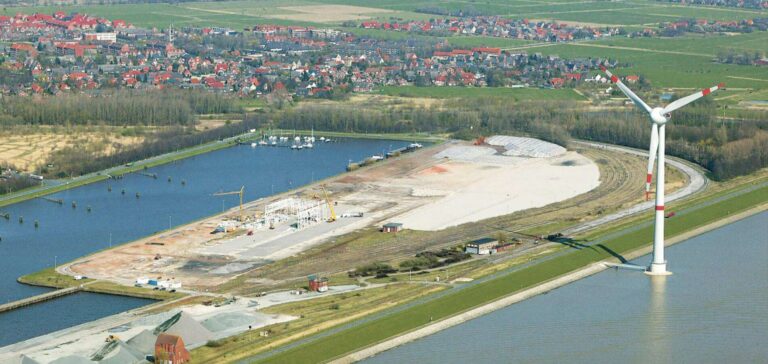Germany plans to add more than 100 TWh of renewable energy per year to the energy mix by 2030.
Germany aims to reach 480 to 540 TWh by 2030
The aim is to support the goal of 80% electric power by 2030.
For Germany, the challenge is to move away from coal, a major emitter of greenhouse gases.
The 2000 Renewable Energy Act(Erneuerbare Energien Gesetz or EEG) was designed to ensure competitive prices.
The new law of 2021 calls for the addition of 377 TWh of renewable energies in Germany over a decade.
By the target date of 2030, renewable energies should account for 65% of Germany’s energy.
The government expects electricity demand to reach between 680 and 750 TWh in 2030.
By this date, Germany’s renewable energies will need to reach a capacity of between 480 and 540 TWh.
Most of this will come from wind and solar power.
A “very ambitious” goal
In 2020, renewable energies supplied a record 46% of Germany’s electricity demand.
The new EEG 2021 law sets a medium-term target of 269 TWh for 2022.
The German utilities association BDEW considers the 80% electrification target to be “very ambitious”.
But the association’s representatives are optimistic.
25 to 38 additional wind turbines per week
BDEW estimates that wind power capacity must increase by at least 130 GW by 2030.
This means adding 25 to 38 wind turbines every week.
By comparison, in 2020, an average of eight wind turbines were installed every week.
Wind power is Germany’s largest source of renewable energy.
The country’s wind farm capacity totals 56 GW, generating 100 TWh per year.
The coalition government plans to devote 2% of Germany’s surface area to wind power projects.
Germany has 7.8 GW of offshore wind power capacity.
A further 4 GW are planned.
Offshore wind power capacity will have to double by 2030 to meet the new targets.
The new targets call for 30 GW of offshore wind power by 2030, compared with 20 GW under the previous government.
Following this, the wind farm on offer will have to reach 40 GW by 2035, then 70 GW by 2045.
Triple Germany’s photovoltaic capacity
As for solar energy, the government is proposing to triple capacity by 2030.
This means an increase from 58 GW to 200 GW.
Solar is also the fastest-growing sector.
The EEG tax, which finances renewable energies at the expense of fossil fuels, is due to expire in 2023.
A new CO2 tax will replace it. S&P Global Platts Analytics forecasts that electricity prices will fall between 2022 and 2025, after peaking in 2022.
This is due to falling gas prices, but also to the record development of renewable energies.
Nearly 46 GW of wind and photovoltaic power will be added between 2022 and 2025.
The new government also plans to improve access to subsidies and facilitate the launch of renewable projects.
The coalition’s priority is to reduce carbon emissions.





















